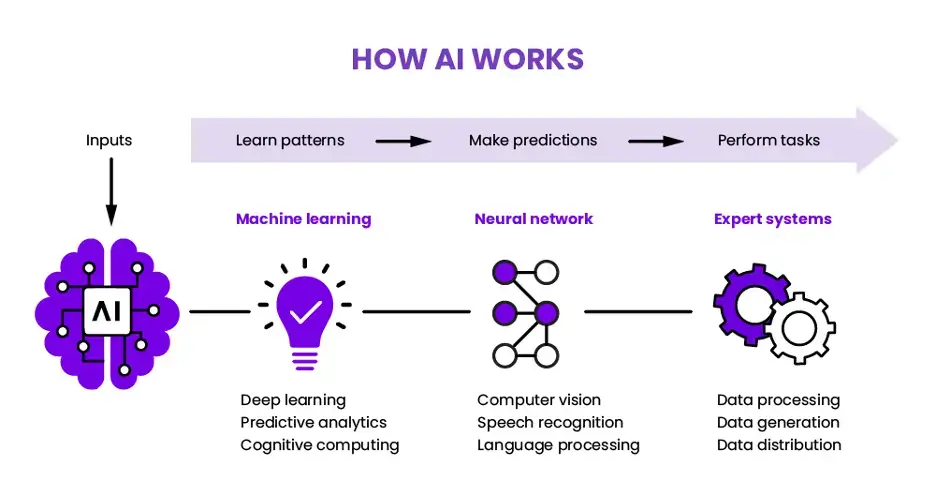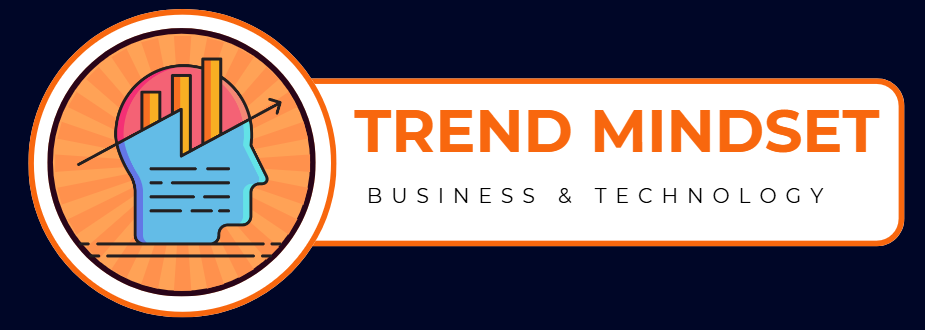Imagine a world where your online experiences feel tailor-made just for you. AI-powered personalization makes this possible.
It uses artificial intelligence to customize interactions and content based on individual preferences. Think about the last time you received a relevant product recommendation or a personalized email. AI-driven algorithms made that happen. They analyze data to predict what you might like or need.
This technology enhances user experiences across various platforms, from shopping sites to streaming services. By understanding user behavior, AI ensures that content is more engaging and relevant. This not only improves customer satisfaction but also boosts business success. Dive into the world of AI-powered personalization and see how it transforms digital interactions.

Credit: kumo.ai
Introduction To Ai-powered Personalization
AI-Powered Personalization is changing how businesses interact with customers. It’s about using artificial intelligence to tailor experiences to individual preferences. This technology can analyze vast amounts of data quickly. Then, it creates personalized recommendations, offers, and content.
Let’s explore the importance of personalization and the role of AI in customer experience.
Importance Of Personalization
Personalization makes customers feel valued. It shows that businesses understand their needs. This can lead to increased loyalty and higher satisfaction.
Consider these benefits of personalization:
- Improved Engagement: Customers are more likely to interact with personalized content.
- Higher Conversion Rates: Personalized recommendations can boost sales.
- Better Customer Retention: Satisfied customers stay longer.
These points highlight why personalization is crucial for businesses today.
Role Of Ai In Customer Experience
AI plays a significant role in enhancing customer experience. It enables businesses to provide personalized interactions at scale. Here’s how:
- Data Analysis: AI can analyze customer data swiftly and accurately.
- Predictive Insights: AI predicts what customers might want next.
- Real-Time Recommendations: AI suggests products and services in real-time.
By leveraging AI, businesses can deliver more relevant and timely experiences. This leads to happier customers and better business outcomes.

Credit: www.qualtrics.com
Benefits Of Ai Personalization
AI-powered personalization is transforming the way businesses interact with customers. It uses algorithms to tailor experiences and offers based on individual preferences. This approach ensures that customers receive relevant content, leading to better engagement and satisfaction. Below are the key benefits of AI personalization.
Enhanced Customer Engagement
AI personalization creates unique experiences for each user. It analyzes browsing patterns and purchase history. With this data, it delivers content that matches the user’s interests. This personal touch keeps customers coming back. They feel valued and understood.
Increased Conversion Rates
Personalized recommendations drive more sales. AI suggests products users are likely to buy. This targeted approach boosts conversion rates. Users see items that fit their needs. They are more likely to make a purchase.
Ai Techniques In Personalization
AI techniques in personalization have changed how businesses interact with customers. These techniques help in creating unique experiences tailored to individual users. The main methods include machine learning algorithms and natural language processing (NLP). Let’s explore these in detail.
Machine Learning Algorithms
Machine learning algorithms analyze large sets of data to identify patterns. These patterns help in making personalized recommendations. For instance, e-commerce platforms use these algorithms to suggest products based on previous purchases.
There are several types of machine learning algorithms:
- Supervised learning: Uses labeled data to make predictions.
- Unsupervised learning: Identifies patterns in unlabeled data.
- Reinforcement learning: Learns by receiving rewards for actions.
These algorithms enable businesses to offer more relevant content to users, improving engagement and satisfaction.
Natural Language Processing
Natural language processing (NLP) helps machines understand and respond to human language. NLP techniques enhance personalization by analyzing text, speech, and other language data. This allows for more accurate and context-aware interactions.
Key applications of NLP in personalization include:
- Chatbots: Provide instant, personalized responses to customer queries.
- Sentiment analysis: Understands customer emotions from reviews and feedback.
- Content recommendation: Suggests articles, videos, and other content based on user interests.
By leveraging NLP, businesses can create more engaging and relevant experiences for their users.
Customer Data And Ai
Customer Data and AI are transforming how businesses interact with their customers. By leveraging AI-powered personalization, companies can offer tailored experiences based on individual preferences. This process relies heavily on customer data to drive accurate insights and recommendations.
Data Collection Methods
Effective data collection methods are crucial for AI-powered personalization. Companies use various techniques to gather customer data:
- Website Analytics: Tracking user behavior on websites.
- Surveys and Feedback Forms: Collecting direct input from customers.
- Social Media Monitoring: Analyzing engagement and interactions on social platforms.
- Transaction Data: Monitoring purchase history and patterns.
- Mobile App Usage: Understanding user activity within mobile applications.
These methods provide valuable information for AI algorithms to create personalized experiences. The more comprehensive the data, the more accurate the personalization.
Data Privacy Concerns
Data privacy concerns are a significant issue in AI-powered personalization. Customers are often wary about how their data is used. Businesses must address these concerns to build trust. Key areas to consider include:
- Transparency: Clearly communicate data collection and usage policies.
- Consent: Ensure customers opt-in before collecting their data.
- Data Security: Implement strong security measures to protect customer information.
- Compliance: Adhere to relevant data protection regulations, such as GDPR or CCPA.
By focusing on these areas, businesses can mitigate privacy concerns and foster a more trusting relationship with their customers.
In conclusion, customer data and AI work hand in hand to create a personalized experience. Effective data collection methods and addressing privacy concerns are essential for success. Businesses must balance personalization with respect for customer privacy to maintain trust and loyalty.
Implementing Ai In Business
Implementing AI in business is a strategic move. It helps in personalizing customer experiences and improving efficiency. Companies can tailor their services to meet individual needs. This leads to higher customer satisfaction and loyalty.
Integration With Existing Systems
Integrating AI with existing systems requires careful planning. Businesses must ensure that new technologies work seamlessly with current processes. This may involve updating software and training employees.
A smooth integration starts with a clear understanding of business needs. Companies should identify areas where AI can add value. This could include customer service, inventory management, or data analysis.
| AI Application | Business Area | Benefits |
|---|---|---|
| Chatbots | Customer Service | 24/7 support, quick responses |
| Predictive Analytics | Marketing | Better targeting, higher conversion |
| Machine Learning | Inventory Management | Efficient stock levels, reduced waste |
Challenges And Solutions
Implementing AI in business comes with challenges. Data privacy is a major concern. Companies must protect customer information. Using encryption and secure storage can help.
Another challenge is high initial costs. AI systems can be expensive to set up. Businesses should consider long-term benefits. AI can save money through automation and improved efficiency.
Resistance to change is also common. Employees may fear job losses. Training programs can ease these fears. Showing how AI can assist rather than replace them is key.
- Ensure data privacy with encryption.
- Calculate long-term savings from AI investment.
- Provide training to employees.
Overcoming these challenges makes AI implementation smoother. Businesses can then enjoy the benefits of AI-powered personalization. This leads to happier customers and more efficient operations.
Case Studies
Case studies provide real-world insights into the effectiveness of AI-powered personalization. They help us understand how different industries use AI to enhance customer experiences. Let’s explore two key areas: the retail industry and the healthcare sector.
Retail Industry
In the retail industry, AI-powered personalization transforms customer interactions. One popular fashion brand used AI to recommend products based on browsing history. This approach increased their sales by 20%. AI also helped them manage inventory better, reducing waste and improving customer satisfaction.
Another example is an online book retailer. They used AI to suggest books based on past purchases and reading habits. This led to a 15% rise in repeat customers. Personalized emails with AI-driven recommendations also saw higher open rates and engagement.
Healthcare Sector
In the healthcare sector, AI-powered personalization improves patient care. One hospital used AI to analyze patient data and predict treatment outcomes. This helped doctors make better decisions and offer personalized treatment plans. Patient recovery times improved as a result.
Another case study involves a healthcare app. The app used AI to offer personalized health tips and reminders. Users received tailored advice based on their health data and activity levels. This led to higher user engagement and better health outcomes.
Future Trends In Ai Personalization
AI-powered personalization is constantly evolving. Future trends in AI personalization are shaping the way businesses interact with customers. These trends promise to create more tailored and engaging experiences.
Predictive Analytics
Predictive analytics uses data to forecast future events. Businesses can use this to understand customer behavior. It helps in anticipating customer needs before they arise. This allows for personalized recommendations and offers. Predictive analytics can enhance customer satisfaction and loyalty. It also helps in optimizing marketing strategies. The result is a win-win for both businesses and customers.
Voice And Visual Search
Voice and visual search are becoming more popular. People use voice assistants like Alexa and Siri. Visual search allows users to search using images. AI helps in understanding these searches better. This leads to more accurate and relevant results. Businesses can use this to offer personalized product suggestions. Voice and visual search make shopping easier and more engaging. They also provide new opportunities for personalization.

Credit: www.linkedin.com
Frequently Asked Questions
What Is Ai-powered Personalization?
AI-powered personalization uses artificial intelligence to tailor experiences to individual users. It analyzes data to provide customized content, recommendations, and interactions.
How Does Ai Improve Personalization?
AI improves personalization by analyzing user behavior and preferences. It uses machine learning to predict and deliver relevant content in real-time.
Why Is Ai Personalization Important?
AI personalization enhances user experience by providing relevant content. It increases engagement, satisfaction, and conversion rates, making it crucial for businesses.
Can Ai Personalization Work For Small Businesses?
Yes, AI personalization can benefit small businesses. It helps them provide a tailored experience, attracting and retaining customers effectively.
Conclusion
Ai-powered personalization offers a unique way to connect with users. It makes experiences tailored and relevant. Businesses can better meet customer needs. This leads to increased satisfaction and loyalty. Users enjoy a more engaging and useful interaction. Embrace the potential of Ai-powered personalization.
Stay ahead in a competitive market. Enhance user experience with smart technology. It’s time to personalize like never before.


